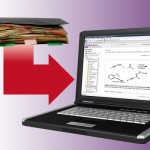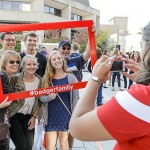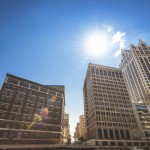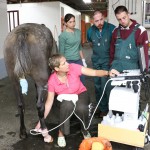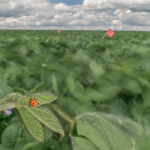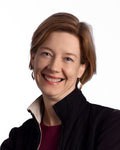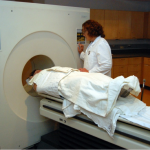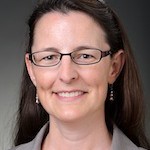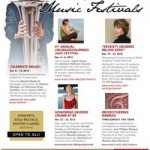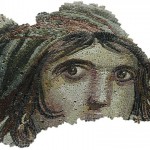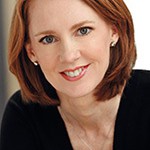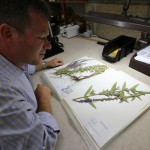Campus news Latest News
Electronic Lab Notebooks now available
Researchers have long relied on the venerable and trusted paper lab notebook for keeping an orderly record of research data, notes and experimental procedures. Soon, researchers on the UW–Madison campus will have a new option to store and organize these activities in the form of Electronic Lab Notebook (ELN) software services under a new UW contract with LabArchives. Read More
Recent sightings: Parents’ Weekend
Campus hosted the annual Parents’ Weekend from Sept. 19-21, formally introducing parents to the staples of campus life. The events included luncheons, photo ops, information sessions, faculty presentations and more. Read More
Actions on climate change bring better health, study says
The number of extremely hot days in Eastern and Midwestern U.S. cities is projected to triple by mid-century, according to a new study led by University of Wisconsin–Madison researchers and published today in the Journal of the American Medical Association. Read More
Ultrasound enhancement provides clarity to damaged tendons, ligaments
Ultrasound is a safe, affordable and noninvasive way to see internal structures, including the developing fetus. Ultrasound can also “see” other soft tissue — including tendons, which attach muscles to bone, and ligaments, which attach bone to bone. Ray Vanderby, a professor of biomedical engineering and orthopedics and rehabilitation at the University of Wisconsin–Madison, is commercializing an ultrasound method to analyze the condition of soft tissue. Read More
Badger duo experiences an amazing summer on ‘The Amazing Race’
Amy DeJong and Maya Warren had a truly epic summer, but they can't tell you about it. Read More
Dwindling wind may tip predator-prey balance
Bent and tossed by the wind, a field of soybean plants presents a challenge for an Asian lady beetle on the hunt for aphids. But what if the air - and the soybeans - were still? Read More
Researchers study role of cultural diversity awareness in biomedical mentoring
The nation needs a more diverse biomedical workforce. To help advance that goal, a team of University of Wisconsin–Madison researchers will assess whether cultural-diversity training of research mentors makes a positive difference for those they are mentoring in biomedical research. Read More
Researchers study vital ‘on/off switches’ that control when bacteria turn deadly
No matter how many times it’s demonstrated, it’s still hard to envision bacteria as social, communicating creatures. But by using a signaling system called “quorum sensing,” these single-celled organisms radically alter their behavior to suit their population. Helen Blackwell, a professor of chemistry at the University of Wisconsin–Madison, has been making artificial compounds that mimic the natural quorum-sensing signals, including some that block a natural signal from binding to its protein target. Read More
Down syndrome helps researchers understand Alzheimer’s disease
The link between a protein typically associated with Alzheimer's disease and its impact on memory and cognition may not be as clear as once thought, according to a new study from the University of Wisconsin–Madison's Waisman Center. The findings are revealing more information about the earliest stages of the neurodegenerative disease. Read More
Crone set to guide Graduate School into new era
This past week, Interim Dean Wendy Crone took time to answer a few questions about the mission and priorities of the Graduate School in its new configuration. Read More
Focus on festivals: School of Music’s new approach invites more interaction
Breaking with tradition, the UW–Madison School of Music will present an array of music festivals this year, rather than individual guest artists scattered throughout the fall and spring semesters. Festivals include one devoted entirely to brass music, scheduled for Oct. 8-13; a jazz festival in early December; and two featuring music of contemporary composers: Cecilia McDowall (Feb. 19-23) and George Crumb (March 22-23). Read More
Excavation exposes Roman imperial outpost at its bitter end
Like Pompeii, the ancient ruins of Zeugma, a frontier city of the Roman Empire on the banks of the Euphrates River in what is now modern Turkey, stood frozen in time. Read More
Give happy: Gretchen Rubin says philanthropy can spur a cycle of happiness
If you’re happy and you know it, do something good for someone else. If you’re not happy and you want to get there, do the same. Read More
Seasonal flu shots available soon for UW students, employees
Flu season will soon be upon us and every year, UW–Madison sees its share of influenza. University Health Services (UHS) strongly recommends that all students, faculty and staff get their flu shot. It's the single best protection against the flu. Read More
Campus botany gardener: transplant master
To hear master gardener Mo Fayyaz tell it, raising plants is straightforward: Get the right light, temperature, soil and water. Keep your eyes open. If one thing doesn’t work, try something else. And if everything fails, choose another plant. “You cannot just plant a rose in the shade and expect much,” he says. In 1984, Fayyaz secured his present job, director of UW–Madison’s Botany Garden and Greenhouse, and he began a long campaign to nurture and expand a garden that supports teaching and research in the biological sciences. Read More
Parents’ Weekend to bring campus to life for Badger parents
Friday afternoon lectures, Friday evening activities, Saturday morning pregame tailgates, Sunday strolls around campus. What may sound like a standard fall weekend for UW–Madison students will soon be experienced by their parents. From Friday through Sunday, Sept. 19-21, campus will host the annual Parents’ Weekend, formally introducing parents to the staples of campus life. Read More
Journal Sentinel’s Mark Johnson to be Science Writer in Residence
Pulitzer-prize winning journalist Mark Johnson will bring his experience and expertise to campus as the fall 2014 University of Wisconsin–Madison Science Writer in Residence. Read More
Project prepares collection for 21st-century challenge of invasive species
At the Wisconsin State Herbarium, director Kenneth Cameron is spearheading a new, three-year project to “digitize” images and data on aquatic and wetland plants, mollusks and fish from the Great Lakes basin. The $2.5 million grant from the National Science Foundation will also be disbursed to natural history museums at UW campuses in Stevens Point, Milwaukee and La Crosse, and in every other Great Lakes state. Together, these institutions expect to digitize 1.73 million specimens related to Great Lakes invasives. Read More

